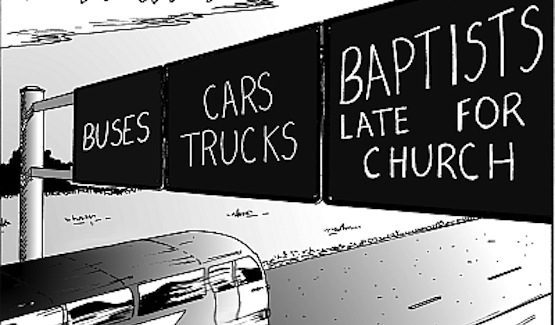In Europe around 1847, there was a huge problem. 1 in 10 women giving birth in hospitals died. A 10% mortality rate is awfully high for something as commonplace as childbirth. There was a doctor who was determined to discover why so many women were dying. His investigation led to what might be the problem. The location of where women gave birth was adjacent to where surgical procedures were performed. Many doctors would perform surgery and then come examine the women in labor. It turns out that these European doctors rarely washed their hands between surgery and examinations. They were unknowingly contaminating these soon-to-be mothers. Adding the step of washing their hands drastically reduced the mortality rate. It seems simple. It seems logical. It seems basic. That’s because we know better now. What these doctors didn’t know now has become common knowledge today.
Ignorance
It sounds like an insulting word, but in this case it’s used to describe what is not yet known. It doesn’t mean that someone is purposely at fault. However, the unknown can still be dangerous.
What these doctors didn’t know caused many women to die unnecessarily. This was a case of human error, something that shows up in every industry and nearly every situation imaginable.
Human error can actually be broken down to two primary causes: ignorance and ineptitude. Let’s talk about ignorance.
Some of my biggest ministry mistakes have been the result of ignorance.
I’ve made assumptions with new volunteers. It’s obvious that we check tags to make sure the right kids go home with the right parents. After having a couple kids go to the wrong parents, I realized that it was dangerous to assume that every volunteer understood what I already understood.
It’s important to understand that ignorance is going to be the cause of many of my mistakes. Ignorance is going to be the cause of mistakes within my ministry. There are things that I don’t know. There are things that my staff and volunteers don’t know. I have to understand that every Sunday, it’s someone’s first time to do something, even if it’s something I’ve done hundreds of times. If I want to greatly reduce human error in my ministry, I need to deal with ignorance.
- What are the things that I don’t know – but I could: Is there a book I should read? Is there a training I should attend? Is there a conversation I need to have with someone who knows more than I do? Prioritize learning what you don’t (but should) know.
- There are things that your volunteers don’t know – but should: Never assume that your volunteers should know something already. Train well. Train often. Train thoroughly. It’s a lot of work on the front end, but once you’ve done the hard work of creating the training materials, you’ll have a well-prepared team.
- There are some things you won’t know until after you make a mistake. It’s inevitable. Document your learning. Don’t make the same mistake twice. Take what you’ve learned and incorporate it into your training process. Ignorance is permissible, negligence is not.
The CHECKLIST
This post is part of a larger series on moving your ministry forward using the often neglected tool - the checklist. In this series, we unpack how a system of checklists can actually help us take our ministry to new levels. Plus, we want to share dozens of actual ministry checklists you and your team can implement right away. Click on the link below to explore this topic and pick up some helpful resources!














Recent Comments